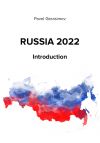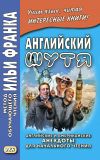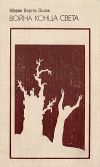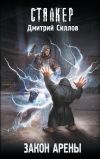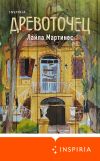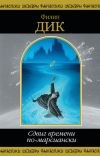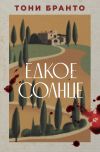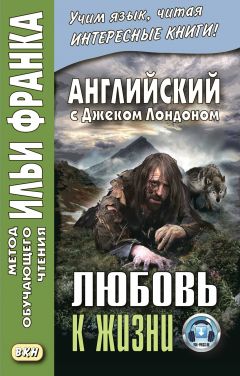
Автор книги: Джек Лондон
Жанр: Иностранные языки, Наука и Образование
Возрастные ограничения: +16
сообщить о неприемлемом содержимом
Текущая страница: 6 (всего у книги 25 страниц) [доступный отрывок для чтения: 8 страниц]
pressure [‘preʃǝ], jaw [ʤɔ:], lead [led]
He did not hear the breath, and he slipped slowly from some dream to the feel of the tongue along his hand. He waited. The fangs pressed softly; the pressure increased; the wolf was exerting its last strength in an effort to sink teeth in the food for which it had waited so long. But the man had waited long, and the lacerated hand closed on the jaw. Slowly, while the wolf struggled feebly and the hand clutched feebly, the other hand crept across to a grip. Five minutes later the whole weight of the man’s body was on top of the wolf. The hands had not sufficient strength to choke the wolf, but the face of the man was pressed close to the throat of the wolf and the mouth of the man was full of hair. At the end of half an hour the man was aware of a warm trickle in his throat. It was not pleasant. It was like molten lead being forced into his stomach, and it was forced by his will alone. Later the man rolled over on his back and slept.
* * *
There were some members of a scientific expedition on the whale-ship Bedford (на китобойном судне «Бедфорд» было несколько членов научной экспедиции). From the deck they remarked a strange object on the shore (с палубы они заметили странный предмет на берегу). It was moving down the beach toward the water (он двигался вниз по берегу к воде). They were unable to classify it (они не смогли классифицировать его), and, being scientific men (и, будучи учеными), they climbed into the whale-boat alongside and went ashore to see (они забрались в вельбот у борта и отправились на берег выяснить). And they saw something that was alive (и они увидели нечто, которое было живым = нечто живое) but which could hardly be called a man (но что едва ли можно было назвать человеком). It was blind, unconscious (оно было незрячим, без сознания). It squirmed along the ground like some monstrous worm (оно двигалось, извиваясь по земле, как какой-то гигантский червь). Most of its efforts were ineffectual (большинство его усилий были бесплодны), but it was persistent (но оно было настойчивым; to persist – настаивать), and it writhed and twisted and went ahead perhaps a score of feet an hour (и оно корчилось, и изгибалось, и двигалось вперед, возможно, /со скоростью/ двадцати футов в час).
scientific [,saɪǝn’tɪfɪk], shore [ʃɔ:], climb [klaɪm]
There were some members of a scientific expedition on the whale-ship Bedford. From the deck they remarked a strange object on the shore. It was moving down the beach toward the water. They were unable to classify it, and, being scientific men, they climbed into the whale-boat alongside and went ashore to see. And they saw something that was alive but which could hardly be called a man. It was blind, unconscious. It squirmed along the ground like some monstrous worm. Most of its efforts were ineffectual, but it was persistent, and it writhed and twisted and went ahead perhaps a score of feet an hour.
* * *
Three weeks afterward the man lay in a bunk on the whale-ship Bedford (три недели спустя человек лежал в койке на китобойном судне «Бедфорд»), and with tears streaming down his wasted cheeks told (и со слезами, стекающими по его исхудавшим щекам, рассказал) who he was and what he had undergone (кто он, и что он испытал; to undergo – испытывать, переносить). He also babbled incoherently of his mother (он также бессвязно бормотал о своей матери), of sunny Southern California (о солнечной Южной Калифорнии), and a home among the orange groves and flowers (и доме среди апельсиновых рощ и цветов).
The days were not many after that when he sat at table with the scientific men and ship’s officers (было = прошло немного = несколько дней после этого, когда он /уже/ сидел за столом с учеными и офицерами корабля). He gloated over the spectacle of so much food (он пожирал глазами зрелище такого большого количества пищи; to gloat over – пожирать глазами), watching it anxiously as it went into the mouths of others (наблюдая за ней тревожно/с беспокойством, когда она отправлялась во рты других). With the disappearance of each mouthful an expression of deep regret came into his eyes (с исчезновением каждого куска в его глазах появлялось выражение глубокого сожаления). He was quite sane (он был совершенно в здравом уме; sane – нормальный, в своем уме, в здравом уме), yet he hated those men at meal-time (тем не менее, он ненавидел этих людей во время еды). He was haunted by a fear that the food would not last (его мучил страх, что еды не хватит; to haunt – мучить; не давать покоя; to last – продолжаться, длиться; хватать, быть достаточным). He inquired of the cook, the cabin-boy, the captain, concerning the food stores (он расспрашивал кока, юнгу, капитана о запасах еды). They reassured him countless times (бессчетное число раз они успокаивали его); but he could not believe them (но он не мог им поверить), and pried cunningly about the lazarette to see with his own eyes (и хитро с любопытством разглядывал кладовую, чтобы убедиться собственными глазами; to pry about – высматривать; с любопытством разглядывать; lazarette – складское помещение /между палубами на судне/, кладовая).
incoherently [,ɪnkǝʋ’hɪǝrǝntlɪ], orange [‘ɒrɪnʤ], captain [‘kæptɪn]
Three weeks afterward the man lay in a bunk on the whale-ship Bedford, and with tears streaming down his wasted cheeks told who he was and what he had undergone. He also babbled incoherently of his mother, of sunny Southern California, and a home among the orange groves and flowers.
The days were not many after that when he sat at table with the scientific men and ship’s officers. He gloated over the spectacle of so much food, watching it anxiously as it went into the mouths of others. With the disappearance of each mouthful an expression of deep regret came into his eyes. He was quite sane, yet he hated those men at meal-time. He was haunted by a fear that the food would not last. He inquired of the cook, the cabin-boy, the captain, concerning the food stores. They reassured him countless times; but he could not believe them, and pried cunningly about the lazarette to see with his own eyes.
It was noticed that the man was getting fat (было замечено, что человек толстеет). He grew stouter with each day (он становился тучнее с каждым днем). The scientific men shook their heads and theorized (ученые качали головами и теоретизировали). They limited the man at his meals (они ограничивали человека в еде), but still his girth increased and he swelled prodigiously under his shirt (но все равно объем его талии увеличивался, и он чрезмерно разбухал под рубахой; girth – подпруга; обхват; объем /талии, грудной клетки/).
The sailors grinned (матросы ухмылялись). They knew (они знали). And when the scientific men set a watch on the man (а когда ученые установили наблюдение за человеком), they knew too (они узнали тоже). They saw him slouch for’ard after breakfast (они увидели, как он побрел /своей неуклюжей походкой/ после завтрака; to slouch – сутулиться, горбиться; неуклюже держаться; to slouch about/around – слоняться, болтаться без дела; for’ard = forward – вперед), and, like a mendicant, with outstretched palm, accost a sailor (и, как попрошайка, с протянутой рукой пристал к матросу). The sailor grinned and passed him a fragment of sea biscuit (матрос ухмыльнулся и передал ему кусок галеты). He clutched it avariciously (он жадно схватил его), looked at it as a miser looks at gold (посмотрел на него, как скряга смотрит на золото), and thrust it into his shirt bosom (и запихнул его за пазуху /рубахи/). Similar were the donations from other grinning sailors (подобными были подаяния и от других ухмыляющихся матросов). The scientific men were discreet (ученые были тактичны; discreet – осмотрительный; тактичный). They let him alone (они оставили его в покое; to let alone – оставить в покое). But they privily examined his bunk (но они тайно осмотрели его койку). It was lined with hardtack (она была набита сухарями); the mattress was stuffed with hardtack (матрас был напичкан сухарями); every nook and cranny was filled with hardtack (каждый уголок и щель были заполнены сухарями). Yet he was sane (тем не менее, он был нормален). He was taking precautions against another possible famine (он принимал предосторожности от еще одного возможного голода) – that was all (и это все). He would recover from it (он оправится от этого), the scientific men said (сказали ученые); and he did (и он оправился), ere the Bedford’s anchor rumbled down in San Francisco Bay (прежде чем якорь «Бедфорда» прогрохотал вниз в заливе Сан-Франциско).
notice [‘nǝʋtɪs], prodigious [prǝ’dɪʤǝs], avaricious [,ævǝ’rɪʃǝs]
It was noticed that the man was getting fat. He grew stouter with each day. The scientific men shook their heads and theorized. They limited the man at his meals, but still his girth increased and he swelled prodigiously under his shirt.
The sailors grinned. They knew. And when the scientific men set a watch on the man, they knew too. They saw him slouch for’ard after breakfast, and, like a mendicant, with outstretched palm, accost a sailor. The sailor grinned and passed him a fragment of sea biscuit. He clutched it avariciously, looked at it as a miser looks at gold, and thrust it into his shirt bosom. Similar were the donations from other grinning sailors. The scientific men were discreet. They let him alone. But they privily examined his bunk. It was lined with hardtack; the mattress was stuffed with hardtack; every nook and cranny was filled with hardtack. Yet he was sane. He was taking precautions against another possible famine – that was all. He would recover from it, the scientific men said; and he did, ere the Bedford’s anchor rumbled down in San Francisco Bay.
Nam-Bok the Unveracious
(Нам-Бок Лжец[4]4
Рассказ адаптировал Олег Дьяконов.
[Закрыть])
“A BIDARKA, is it not so (байдарка, разве не так)? Look (смотрите)! a bidarka, and one man who drives clumsily with a paddle (байдарка и один человек, который неуклюже и усердно работает веслом; to drive – вести; ехать; усердно работать)!”
Old Bask-Wah-Wan rose to her knees (старая Баск-Уа-Уан встала на колени), trembling with weakness and eagerness (дрожа от слабости и нетерпения; eagerness – пыл, рвение, старание; eager – страстно желающий, жаждущий), and gazed out over the sea (и пристально вгляделась в море).
“Nam-Bok was ever clumsy at the paddle (Нам-Бок всегда был неуклюж/неловок с веслом),” she maundered reminiscently (пробормотала она, вспоминая; to maunder – бормотать, говорить невнятно и бессвязно; reminiscent – вспоминающий), shading the sun from her eyes and staring across the silverspilled water (прикрывая глаза от солнца и пристально глядя на усыпанную серебром воду; to shade – затемнять, заслонять от света; shade – тень; to spill – рассыпать). “Nam-Bok was ever clumsy (Нам-Бок всегда был неловок). I remember (я помню)…”
clumsily [‘klʌmzɪlɪ], maunder [‘mɔ:ndǝ], reminiscent [,remɪ’nɪsnt]
“A BIDARKA, is it not so? Look! a bidarka, and one man who drives clumsily with a paddle!”
Old Bask-Wah-Wan rose to her knees, trembling with weakness and eagerness, and gazed out over the sea.
“Nam-Bok was ever clumsy at the paddle,” she maundered reminiscently, shading the sun from her eyes and staring across the silverspilled water. “Nam-Bok was ever clumsy. I remember…”
But the women and children laughed loudly (но женщины и дети громко засмеялись), and there was a gentle mockery in their laughter (и в их смехе была легкая насмешка; to mock – насмехаться), and her voice dwindled till her lips moved without sound (и ее голос стал утихать, пока ее губы не задвигались беззвучно; to dwindle – сокращаться, уменьшаться, убывать, истощаться).
Koogah lifted his grizzled head from his bone-carving and followed the path of her eyes (Куга поднял свою седую голову от вырезания на кости и проследил за движением ее глаз; path – дорожка; траектория движения). Except when wide yaws took it off its course (за исключением тех моментов, когда большие рыскания = броски в сторону отклоняли ее от курса), a bidarka was heading in for the beach (байдарка направлялась к берегу; to head – направляться, держать курс). Its occupant was paddling with more strength than dexterity (ее пассажир греб с большей силой, нежели сноровкой), and made his approach along the zigzag line of most resistance (и приближался по зигзагообразной линии наибольшего сопротивления). Koogah’s head dropped to his work again (голова Куги снова опустилась к работе), and on the ivory tusk between his knees he scratched the dorsal fin of a fish the like of which never swam in the sea (и на бивне цвета слоновой кости между колен он нацарапал спинной плавник рыбы, подобные которой никогда не плавали в море; to swim – плавать).
laughter [‘lɑ:ftǝ], approach [ǝ’prǝʋʧ], ivory [‘aɪvǝrɪ]
But the women and children laughed loudly, and there was a gentle mockery in their laughter, and her voice dwindled till her lips moved without sound.
Koogah lifted his grizzled head from his bone-carving and followed the path of her eyes. Except when wide yaws took it off its course, a bidarka was heading in for the beach. Its occupant was paddling with more strength than dexterity, and made his approach along the zigzag line of most resistance. Koogah’s head dropped to his work again, and on the ivory tusk between his knees he scratched the dorsal fin of a fish the like of which never swam in the sea.
“It is doubtless the man from the next village (это, несомненно, человек из соседнего поселка),” he said finally (сказал он наконец), “come to consult with me about the marking of things on bone (едет, чтобы посоветоваться со мной о том, как наносить изображения на кости; marking – закраска; маркировка; разметка; to mark – размечать; наносить). And the man is a clumsy man (и этот мужчина – неловкий человек). He will never know how (он никогда не поймет как).”
“It is Nam-Bok (это – Нам-Бок),” old Bask-Wah-Wan repeated (повторила старая Баск-Уа-Уан). “Should I not know my son (мне ли не знать моего сына)?” she demanded shrilly (резко спросила она; shrill – пронзительный, резкий; визгливый; высокий /о голосе, звуке/). “I say, and I say again, it is Nam-Bok (я говорю и повторю, это – Нам-Бок).”
doubtless [‘daʋtlɪs], consult [kǝn’sʌlt], demand [dɪ’mɑ:nd]
“It is doubtless the man from the next village,” he said finally, “come to consult with me about the marking of things on bone. And the man is a clumsy man. He will never know how.”
“It is Nam-Bok,” old Bask-Wah-Wan repeated. “Should I not know my son?” she demanded shrilly. “I say, and I say again, it is Nam-Bok.”
“And so thou hast said these many summers (и так ты говорила эти многие лета),” one of the women chided softly (мягко проворчала одна из женщин). “Ever when the ice passed out of the sea hast thou sat and watched through the long day (всегда, как лед сходил с моря, ты сидела и наблюдала весь долгий день), saying at each chance canoe (говоря на каждое случайное каноэ), ‘This is Nam-Bok (это Нам-Бок).’ Nam-Bok is dead (Нам-Бок мертв), O Bask-Wah-Wan (о Баск-Уа-Уан), and the dead do not come back (а мертвые не возвращаются). It cannot be that the dead come back (не может быть, чтобы мертвые возвращались).” “Nam-Bok!” the old woman cried (закричала старуха), so loud and clear that the whole village was startled and looked at her (так громко и звонко, что весь поселок /все жители поселка/ поразился/вздрогнул и посмотрел на нее; to startle – испугать; поразить, сильно удивить; вздрагивать).
women [‘wɪmɪn], thou [ðǝʋ], canoe [kǝ’nu:]
“And so thou hast said these many summers,” one of the women chided softly. “Ever when the ice passed out of the sea hast thou sat and watched through the long day, saying at each chance canoe, ‘This is Nam-Bok.’ Nam-Bok is dead, O Bask-Wah-Wan, and the dead do not come back. It cannot be that the dead come back.” “Nam-Bok!” the old woman cried, so loud and clear that the whole village was startled and looked at her.
She struggled to her feet and tottered down the sand (она с усилием поднялась на ноги и поковыляла по песку; to struggle – делать усилия, стараться изо всех сил). She stumbled over a baby lying in the sun (она споткнулась о ребенка, лежавшего на солнце), and the mother hushed its crying and hurled harsh words after the old woman (и мать успокоила его плач и бросила грубые слова вслед старухе), who took no notice (которая не обратила внимания; to take notice – замечать). The children ran down the beach in advance of her (дети побежали по берегу впереди нее), and as the man in the bidarka drew closer (и когда человек в байдарке приблизился; to draw close – приближаться), nearly capsizing with one of his ill-directed strokes (чуть не опрокинувшись от одного из своих плохо направленных гребков; stroke – удар; гребок), the women followed (/за детьми/ последовали женщины). Koogah dropped his walrus tusk and went also (Куга бросил бивень моржа и пошел тоже), leaning heavily upon his staff (тяжело опираясь на свой посох), and after him loitered the men in twos and threes (а за ним поплелись мужчины по двое и по трое).
struggle [strʌɡl], heavily [‘hevɪlɪ], staff [stɑ:f]
She struggled to her feet and tottered down the sand. She stumbled over a baby lying in the sun, and the mother hushed its crying and hurled harsh words after the old woman, who took no notice. The children ran down the beach in advance of her, and as the man in the bidarka drew closer, nearly capsizing with one of his ill-directed strokes, the women followed. Koogah dropped his walrus tusk and went also, leaning heavily upon his staff, and after him loitered the men in twos and threes.
The bidarka turned broadside and the ripple of surf threatened to swamp it (байдарка повернулась бортом, и небольшая волна прибоя грозила залить ее; ripple – зыбь, небольшая волна /на поверхности воды/; to swamp – заливать, затоплять), only a naked boy ran into the water and pulled the bow high up on the sand (только = однако голый мальчик вбежал в воду и втащил нос /лодки/ высоко на песчаный пляж). The man stood up and sent a questing glance along the line of villagers (мужчина встал и направил ищущий взгляд вдоль ряда жителей села; to quest – искать). A rainbow sweater, dirty and the worse for wear (радужный = разноцветный свитер, грязный и изношенный хуже некуда: «худший из-за носки»), clung loosely to his broad shoulders (свободно держался на его широких плечах; to cling – цепляться, прилипать, крепко держаться), and a red cotton handkerchief was knotted in sailor fashion about his throat (а вокруг горла = на шее по-матросски был повязан красный хлопчатобумажный носовой платок). A fisherman’s tam-o’-shanter on his close-clipped head (рыбацкий шотландский берет на его коротко постриженной голове), and dungaree trousers and heavy brogans (рабочие брюки из грубой хлопчатобумажной ткани и тяжелые ботинки-броганы; brogans = brogues – броуги /грубые рабочие башмаки из недубленой кожи/), completed his outfit (довершали его наряд).
broadside [‘brɔ:dsaɪd], threaten [θretn], handkerchief [‘hæŋkǝʧɪf]
The bidarka turned broadside and the ripple of surf threatened to swamp it, only a naked boy ran into the water and pulled the bow high up on the sand. The man stood up and sent a questing glance along the line of villagers. A rainbow sweater, dirty and the worse for wear, clung loosely to his broad shoulders, and a red cotton handkerchief was knotted in sailor fashion about his throat. A fisherman’s tam-o’-shanter on his close-clipped head, and dungaree trousers and heavy brogans, completed his outfit.
But he was none the less a striking personage to these simple fisherfolk of the great Yukon Delta (но, тем не менее, он был поразительной личностью для этого простого народа рыболовов с огромной дельты Юкона; none the less – тем не менее), who, all their lives, had stared out on Bering Sea and in that time seen but two white men (которые всю свою жизнь вглядывались в Берингово море и в то время повидали лишь двух белых людей), – the census enumerator and a lost Jesuit priest (счетчика по переписи населения и заблудившегося священника-иезуита). They were a poor people (они были бедным народом), with neither gold in the ground nor valuable furs in hand (/у них не было/ ни золота в земле, ни ценных мехов в наличии; in hand – в руках; в наличии, в собственном распоряжении; под контролем), so the whites had passed them afar (поэтому белые проходили вдали от них). Also, the Yukon, through the thousands of years (и Юкон тоже на протяжении тысяч лет), had shoaled that portion of the sea with the detritus of Alaska (обмелел на этом участке моря из-за наносов с Аляски; detritus – наносы, шлам; shoal – мелкое место, мелководье) till vessels grounded out of sight of land (пока суда не стали садиться на мель за пределами видимости суши). So the sodden coast (поэтому влажное побережье), with its long inside reaches and huge mud-land archipelagoes (с его обширными внутренними пространствами и огромными архипелагами суши из ила), was avoided by the ships of men (было избегаемо кораблями людей), and the fisherfolk knew not that such things were (и рыбачий народ не знал, что такие существуют = об их существовании).
none [nʌn], personage [‘pǝ:snɪʤ], valuable [‘væljʋǝbl], neither [‘naɪðǝ], [‘nɪðǝ]
But he was none the less a striking personage to these simple fisherfolk of the great Yukon Delta, who, all their lives, had stared out on Bering Sea and in that time seen but two white men, – the census enumerator and a lost Jesuit priest. They were a poor people, with neither gold in the ground nor valuable furs in hand, so the whites had passed them afar. Also, the Yukon, through the thousands of years, had shoaled that portion of the sea with the detritus of Alaska till vessels grounded out of sight of land. So the sodden coast, with its long inside reaches and huge mud-land archipelagoes, was avoided by the ships of men, and the fisherfolk knew not that such things were.
Koogah, the Bone-Scratcher, retreated backward in sudden haste (Куга-Косторез вдруг поспешно: «в неожиданной спешке» отступил назад; to scratch – царапать; гравировать; in haste – в спешке), tripping over his staff and falling to the ground (споткнувшись о свой посох и упав на землю). “Nam-Bok!” he cried (воскликнул он), as he scrambled wildly for footing (отчаянно цепляясь в поисках опоры). “Nam-Bok, who was blown off to sea, came back (Нам-Бок, которого снесло в море, вернулся; to blow off – сдувать)!”
The men and women shrank away (мужчины и женщины сжались; to shrink away – сжиматься, уменьшаться), and the children scuttled off between their legs (а дети сбежали /укрывшись/ между их ног = у их ног). Only Opee-Kwan was brave (лишь Опи-Кван был смел), as befitted the head man of the village (как подобает главе поселка; headman – глава, начальник, руководитель, шеф, вождь). He strode forward and gazed long and earnestly at the new-comer (он шагнул вперед и вглядывался долго и серьезно в пришельца; to stride – шагать /большими шагами/).
haste [heɪst], forward [‘fɔ:wǝd], earnestly [‘ǝ:nɪstlɪ]
Koogah, the Bone-Scratcher, retreated backward in sudden haste, tripping over his staff and falling to the ground. “Nam-Bok!” he cried, as he scrambled wildly for footing. “Nam-Bok, who was blown off to sea, came back!”
The men and women shrank away, and the children scuttled off between their legs. Only Opee-Kwan was brave, as befitted the head man of the village. He strode forward and gazed long and earnestly at the new-comer.
“It is Nam-Bok (это – Нам-Бок),” he said at last (сказал он наконец), and at the conviction in his voice the women wailed apprehensively and drew farther away (и при убежденности в его голосе женщины малодушно запричитали и отошли дальше; apprehensively – трусливо, малодушно).
The lips of the stranger moved indecisively (губы незнакомца неуверенно зашевелились; decisive – решающий; решительный), and his brown throat writhed and wrestled with unspoken words (а его загорелая гортань скорчилась и напряглась от невысказанных слов; to writhe – корчиться /от боли/; to wrestle – корчиться, извиваться; бороться).
“La, la, it is Nam-Bok (ля-ля, это – Нам-Бок),” Bask-Wah-Wan croaked (прокаркала Баск-Уа-Уан; to croak – каркать; квакать; издавать хриплые звуки), peering up into his face (вглядываясь вверх в его лицо). “Ever did I say Nam-Bok would come back (я всегда говорила, что Нам-Бок вернется).”
apprehensive [,æprɪ’hensɪv], writhe [raɪð], wrestle [resl]
“It is Nam-Bok,” he said at last, and at the conviction in his voice the women wailed apprehensively and drew farther away.
The lips of the stranger moved indecisively, and his brown throat writhed and wrestled with unspoken words.
“La, la, it is Nam-Bok,” Bask-Wah-Wan croaked, peering up into his face. “Ever did I say Nam-Bok would come back.”
“Ay, it is Nam-Bok come back (да, это вернулся Нам-Бок).” This time it was Nam-Bok himself who spoke (на этот раз заговорил сам Нам-Бок), putting a leg over the side of the bidarka and standing with one foot afloat and one ashore (перебросив ногу через борт байдарки и стоя одной ногой на борту /лодки/, а одной – на берегу; afloat – на борту, на борт /судна/). Again his throat writhed and wrestled as he grappled after forgotten words (опять его горло = кадык скорчился и задергался, словно он хватался за забытые слова; to grapple – зацепить, схватить, ухватить). And when the words came forth (а когда слова вышли; to come forth – выходить вперед, выступать, выдвигаться) they were strange of sound and a spluttering of the lips accompanied the gutturals (они оказались странными по звучанию, а гортанные звуки сопровождал какой-то всплеск = какое-то пришлепывание губ). “Greeting, O brothers (приветствую: «приветствие», о братья),” he said, “brothers of old time before I went away with the off-shore wind (братья прежнего времени, /которое было/ до того как я ушел с ветром с берега).”
word [wǝ:d], accompany [ǝ’kʌmpǝnɪ], brother [‘brʌðǝ]
“Ay, it is Nam-Bok come back.” This time it was Nam-Bok himself who spoke, putting a leg over the side of the bidarka and standing with one foot afloat and one ashore. Again his throat writhed and wrestled as he grappled after forgotten words. And when the words came forth they were strange of sound and a spluttering of the lips accompanied the gutturals. “Greeting, O brothers,” he said, “brothers of old time before I went away with the off-shore wind.”
He stepped out with both feet on the sand (он шагнул обеими ногами на песчаный берег), and Opee-Kwan waved him back (а Опи-Кван махнул ему назад = чтобы он вернулся).
“Thou art dead, Nam-Bok (ты мертв, Нам-Бок),” he said.
Nam-Bok laughed (Нам-Бок засмеялся). “I am fat (я толстый).”
“Dead men are not fat (мертвецы не бывают толстыми),” Opee-Kwan confessed (признал Опи-Кван). “Thou hast fared well (ты хорошо жил/питался; to fare – жить; питаться), but it is strange (но это необыкновенно). No man may mate with the off-shore wind and come back on the heels of the years (ни один человек не может подружиться с ветром с берега и вернуться спустя годы; to mate with – общаться c, поддерживать компанию; on the heels of – вслед за, следом, по пятам; heel – пята).”
“I have come back (я вернулся),” Nam-Bok answered simply (ответил Нам-Бок простодушно; simply – просто; простодушно).
“Mayhap thou art a shadow, then (тогда, может быть, ты призрак; shadow – тень), a passing shadow of the Nam-Bok that was (мимолетная тень того Нам-Бока, который был). Shadows come back (призраки возвращаются).”
“I am hungry (но я голоден). Shadows do not eat (призраки не едят).”
fare [feǝ], answer [‘ɑ:nsǝ], shadow [‘ʃædǝʋ]
He stepped out with both feet on the sand, and Opee-Kwan waved him back.
“Thou art dead, Nam-Bok,” he said.
Nam-Bok laughed. “I am fat.”
“Dead men are not fat,” Opee-Kwan confessed. “Thou hast fared well, but it is strange. No man may mate with the off-shore wind and come back on the heels of the years.”
“I have come back,” Nam-Bok answered simply.
“Mayhap thou art a shadow, then, a passing shadow of the Nam-Bok that was. Shadows come back.”
“I am hungry. Shadows do not eat.”
But Opee-Kwan doubted (но Опи-Кван сомневался), and brushed his hand across his brow in sore puzzlement (и провел рукой по лбу в мучительном замешательстве; sore – больной; мучительный). Nam-Bok was likewise puzzled (Нам-Бок тоже был озадачен), and as he looked up and down the line found no welcome in the eyes of the fisherfolk (и когда он осматривал с головы до ног шеренгу /людей/, то не обнаружил гостеприимства в глазах рыбачьего народа). The men and women whispered together (мужчины и женщины шептались друг с другом). The children stole timidly back among their elders (дети робко прокрались назад между старшими; to steal – красть/ся/), and bristling dogs fawned up to him and sniffed suspiciously (а ощетинившиеся собаки виляли хвостом перед ним и подозрительно принюхивались; to fawn – вилять хвостом).
“I bore thee, Nam-Bok (я родила тебя, Нам-Бок; to bear – рожать), and I gave thee suck when thou west little (и я кормила тебя материнским молоком, когда ты был маленьким),” Bask-Wah-Wan whimpered, drawing closer (захныкала, приближаясь, Баск-Уа-Уан; to draw close – приближаться); “and shadow though thou be, or no shadow (и будь ты хоть призрак иль не призрак), I will give thee to eat now (я дам тебе есть = накормлю тебя /и/ сейчас).”
doubt [daʋt], timid [‘tɪmɪd], suspicious [sǝs’pɪʃǝs]
But Opee-Kwan doubted, and brushed his hand across his brow in sore puzzlement. Nam-Bok was likewise puzzled, and as he looked up and down the line found no welcome in the eyes of the fisherfolk. The men and women whispered together. The children stole timidly back among their elders, and bristling dogs fawned up to him and sniffed suspiciously.
“I bore thee, Nam-Bok, and I gave thee suck when thou west little,” Bask-Wah-Wan whimpered, drawing closer; “and shadow though thou be, or no shadow, I will give thee to eat now.”
Nam-Bok made to come to her (Нам-Бок попытался подойти к ней; to make – пытаться /что-либо сделать/), but a growl of fear and menace warned him back (но гул страха и угрозы предостерег его /и он шагнул/ назад). He said something in a strange tongue (он сказал что-то на незнакомом языке) which sounded like “Goddam (что прозвучало наподобие «черт побери»; goddam – проклятие = god damn – да проклянет Бог),” and added (и добавил), “No shadow am I, but a man (я никакой призрак, а человек).”
Правообладателям!
Данное произведение размещено по согласованию с ООО "ЛитРес" (20% исходного текста). Если размещение книги нарушает чьи-либо права, то сообщите об этом.Читателям!
Оплатили, но не знаете что делать дальше?